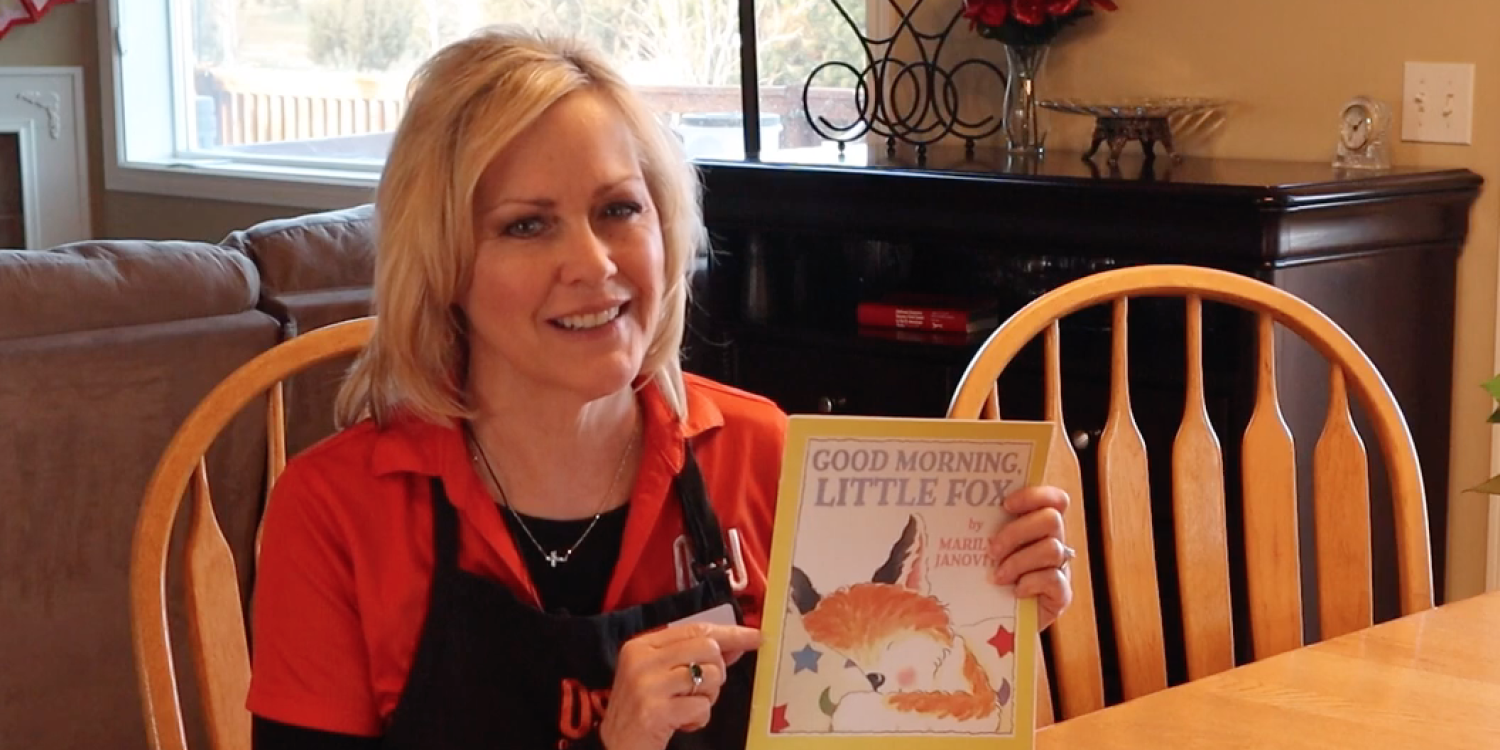
Nutrition educators in Oregon State University Extension’s Family and Community Health Program have a long history of successful partnerships with local school districts. In rural Jefferson County, they provide health instruction to students in elementary schools, middle and high schools in four districts. Their ability to deliver in-person lessons and activities changed overnight with the onset of the COVID-19 pandemic, so they adapted.
Dorian Oppenlander, education program assistant with the county’s Supplemental Nutrition Assistance Program Education (SNAP-Ed) unit, coordinated with the Jefferson County Library District to create storybook videos in which she read books approved by SNAP-Ed. Olivia Davis, SNAP-Ed coordinator, provided editing and technical support along with Tracy Wilson, Extension’s central Oregon agricultural literacy coordinator, to record and edit video. The videos were made available to the library, as well as SNAP-Ed units across the state and schools to include in their online learning materials.
After the 2020-21 school year, Jefferson County SNAP-Ed participated in an extended summer school program. Oppenlander, Davis and Wilson provided nutrition, physical activity and hand-washing lessons to students from first through eighth grades. The unit spent 26 hours teaching 32 classes to 450 youths and 64 adults. Participants were engaged in discussions on whole grains, fruits, vegetables and the importance of drinking water.
Jefferson County SNAP-Ed adapted to individual school needs when in-person programming returned to most schools for the 2021-22 school year.
In one elementary school, teachers needed the entire day so instead of in the classroom, Oppenlander delivered physical activity lessons in the school library and rotated from kindergarten through fifth grades so that all students participated by the end of the school year. In another school, SNAP-Ed taught nutrition to 496 students in the school library. This was the first time many of the students had prepared their own food or followed a recipe. SNAP-Ed faculty and staff provided a shortened series of cooking skills classes for fourth through seventh grades in an after-school program that engaged 65 students.
As a result of this work, Jefferson County SNAP-Ed created six storybook videos. They sparked statewide collaboration to create more videos featuring educators across the state with as many approved books as possible. This project increased SNAP-Ed approved educational resources, increasing impact and programming possibilities statewide.
Using school libraries to deliver cooking lessons and physical education continued through the start of the 2022-23 school year. After-school programming is planned, and school needs are being met.